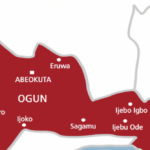islam
ayat
“Verily, those who have attained to faith [in this divine writ], as well as those who follow the Jewish faith, and the Christians, and the Sabians – all who believe in God and the Last Day and do righteous deeds – shall have their reward with their Sustainer; and no fear need they have, and neither shall they grieve. Quran 2:62”
Hadith
Abu Hurayrah and al-Hassan bin ‘Aliy (as) both reported from Prophet Muhammad (saw) that he said, “Whosoever approaches a fortuneteller and believes what he says, he has disbelieved in what had been revealed to Muhammad” (Ahmad).
Imperative of citizens’ cordial relation with authority
By Abbas Jimoh
It is generally believed that there cannot be meaningful development in any society if there is no correlation between the leaders and the people they led.
Also is the need for mutual respect, love and understanding such that the inevitable societal disputes can be resolved amicably, but the society breaks down if the constituted authority and the citizens are having a ‘parallel line’ relationship and approach to issues.
Islam prescribes clear dictates in the Qur’an and Sunnah of Prophet Muhammad (pbuh) on the rights and responsibilities of the leaders and the led. It is however surprising that many societies are experiencing multi-faceted socio-economic and political challenges stalling growth and human development.
This was the concern of the National Coordinator of Zaymar Islamic Research and Development Education Centre, Hajiya Shifa Garba, who partnered some individuals and organisations to organised a two-day conference on promoting national stability through constructive social relations with constituted authority at the Abuja National Mosque.
Hajiya Garba said the conference was to promote peace and better understanding among the leaders and the led. There is the need for dialogue and tolerance for Nigeria to overcome its challenges and achieve rapid development.
At the end of the conference attended by local and international Muslim clerics and other scholars, participants among other recommendations in the communique signed by Hajiya Garba, call for special roles for religious and traditional leaders to fast-track peace and national healing.
The conference themed: “Promoting National Stability Through Constructive Social Relations with Constituted Authority” said that de-radicalization of youth is an essential tool to minimize acts of violence and terrorism.
“People of faith should assume special roles in nation building, security, stability and protecting territorial integrity. Nigerians should be cautious in adopting ideologies that do not uphold our national stability and respect for constituted authority. National stability is the main key to socio-economic development. Essence of unity goes beyond religious collaboration and should be extended in full spirit of loyalty nationwide in every other aspect of engagement to promote peace, progress and stability,” the communique said.
It said that food security is an inevitable tool for assuring national stability, moderation, tolerance and peaceful co-existence and that disrespect for women promotes stigmatization, minimum involvement in nation building and lack of interest in proper training of children and wards to become responsible citizens.
While saying that rumour-mongering, incitement and lack of authenticated information are threats to national security and stability, the communique said mutual respect, mutual co-existence and mutual understanding encourage unity and stability.
It said that extremism is a leeway to terrorism, disrespect for constituted authority and state of unrest and that traditional rulers should re-assume role of check-mating preachers to avoid calumny, hate speeches and negative influence on followers especially the youths.
During the plenaries the Federal Government through the Minister of Information and Culture Alhaji Lai Mohammed urged Muslims to respect constituted authorities in order to promote national security, stability and societal cohesion.
The minister represented by the Deputy Director anti-corruption and transparency unit of the Ministry Mallam Abdulrasak Yakubu Bichi said Muslims no matter the sect they belong to must accord constituted authority in the country the requisite recognition and loyalty it deserves as Islam is synonymous with peace and loyalty to constituted authority.
“The Holy Qur’an and the Prophet Muhammad harp on the need for believers to obey, remain loyal and to recognize and acknowledge the authority of those who preside over their affairs, particularly their Muslim leaders. We should treat them with utmost respect and desist from being confrontational to them,” Mohammed said.
Also the duo of the Chief of Army Staff Lt. Gen Tukur Yusuf Buratai and Chief of Naval Staff Vice Admiral Ibok Ekwe Ibas assured Nigerians of security and respect for human rights.
Ibas represented by the Admiral Superintended Naval Dockyard Limited Lagos, Rear Admiral Abdullateef Akintola and Buratai represented by the Army Director of Religious Affairs Col. Shehu Garba Mustafa said that the citizens’ resolve to work with the constituted authorities is key to resolving the nation’s multi-faceted challenges.
Niger State Governor Alhaji Abubakar Sani Bello represented by his Special Adviser on Religious Affairs, Alhaji Tanko Baba Ahmed, said that the theme of the conference is apt considering current happenings in the country.
He decried a situation where the youth who are the future of the country have been neglected by both the government and the society, adding: “We have it as a duty to individually and collectively cater for the youth because they are the future generation.”
The conference also witnessed presentations from Professor Misbahudeen Ahmed Rufai of the Malcolm X College Chicago USA, the Commissioner of Information, Culture and Home Affairs Katsina State Alhaji Hamza Brodo, Dr. Ahmad Bello Dogarawa of the Ahamdu Bello University (ABU) Zaria, and the CEO Comerel Travels Abuja Ustaz Abubakr Sideeq who spoke on ‘Utilizing Context Specific Religious Tools To Promote Constructive Social Relationship With Constituted Authority’ among others.
Position of Islam on visiting fortune-tellers
By Zakariyya Adaramola
Islam has taken a strong position against visitation of fortune tellers and the art of fortunetelling. The Islamic ruling with regard to a Muslim who visits a fortuneteller and believes what he (the fortuneteller) tells him or believes that the fortuneteller knows the unseen and the future, is that it is kufr (disbelief), according to the scholars. They based their evidence on the saying of Allah: “With Him are the Keys of the Ghayb (unseen); none knows them but He.”(Qur’an 6:59).
Allah also told Prophet Muhammad (saw): “Say! I have no power to bring good to myself nor avert harm but it is only as Allah wills. If it were that I knew the unseen, I would have multiplied the good and no evil would have touched me.” (Qur’an 7: 188).
Allah also said: “Say! None in the heavens nor the earth knows the unseen except Allah.” (Qur’an 27:65)
There are many similar verses in some other chapters of the holy book. But Allah, in some of the verses, said he revealed some of the knowledge of unseen to His chosen Prophets and Messengers in order to preach His message to the people.
Abu Hurayrah and al-Hassan bin ‘Aliy (as) both reported from Prophet Muhammad (saw) that he said, “Whosoever approaches a fortuneteller and believes what he says, he has disbelieved in what had been revealed to Muhammad” (Ahmad).
This is because such a belief assigns to creation some of the attributes of Allah with regard to the knowledge of the unseen and the future.
Islam also opposes any form of association with those who practice fortunetelling, except may be to advise them to give up their forbidden trade.
The prophet was reported by one of his wives, Hafsah bint Umar (May Allah be pleased with them), as saying, “The sallah of whoever approaches a fortuneteller and asks him about anything will not be accepted for 40 days and nights.” (Muslim)
The scholars said the punishment stated in this hadith is simply for approaching a fortuneteller and asking him/her out of curiosity. But believing him/her amounts to disbelief in Islam.
The above hadith is further supported by another hadith reported by Mu’awiyyah Ibn al-Hakam as-Sulamee in which he said: “O Messenger of Allah, verily there are some people among us who visit oracles.” The prophet replied: “Do not go to them.” (Muslim)
The Islamic scholars said there is prohibition on visiting the fortuneteller because it is the first step to belief in fortunetelling. For instance, if one went to him doubtful about the truthfulness of his predictions, and some of the predictions later come true, one may become a true devotee of the fortuneteller and a believer in fortunetelling.
The scholars said the ruling of going to or and believe in what fortuneteller predicts, includes, by analogy (Qiyas), those who read the books and writings of fortunetellers, listen to them on the radio or watch them on the television because all these are the most common means used by the modern day fortunetellers to spread their predictions.
“Therefore, all the various methods used around the world by oracles, fortunetellers, and the likes, are forbidden to Muslims. Palm-reading, I-Ching, fortune cookies, tea leaves as well as Zodiac signs and Bio-rhythm computer programs, all claim to inform those who believe in them about their future. However, Allah has stated in no certain terms that He alone knows the future: “Verily the knowledge of the Hour is with Allah alone. It is He who sends down the rain and knows the contents of the wombs. No one knows what he will earn tomorrow nor in which land he will die, but Allah is all-knowing and aware.” (Qur’an 31: 34)
“Therefore, Muslims must take utmost care in dealing with books, magazines, newspapers as well as individuals who, in one way or another, claim knowledge of the future or the unseen. For example, when a Muslim weather-man predicts rain, snow, or other climatic conditions for tomorrow he should add the phrase, ‘In sha Allah’ (If Allah so wishes). Likewise, when the Muslim doctor informs her patient that she will deliver a child in 9 months or on such and such a day, she should take care to add the phrase ‘in sha Allah’, as such statements are only estimations based on statistical information”, wrote Dr Abu Amenah Bilal Philips in his book, The Fundamental of Tawhid.



